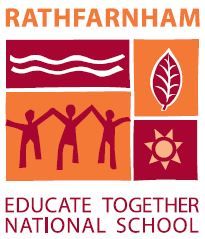Technology has presented a wealth of new opportunities for children and there is no doubt that technology is playing an increasingly important role in children’s lives today. An ever-growing number of children now have, or have access to, mobile devices of one sort or another, and even the youngest children know their way around these devices without much effort. In addition, many homes have high-speed broadband which surpasses the broadband experience offered by schools. The question then arises as to what schools can do to influence the use of technology outside of school so that it can be a positive learning experience for young people.
While schools are hampered by a lack of funding for technology, there have been a number of initiatives which are internet based and which allow children to continue their learning at home in a fun way. Many pupils love logging on at home to continue with work which they have been doing in school and with these types of applications parents have the opportunity to monitor pupils’ work, support their learning and ensure that they make good use of some of their time online.
Three applications which are well researched and recommended are Mathletics, Reading Eggs (3-8 years)/Reading Express (7-13 years) and Spelling City. Mathletics and Spelling City have both and iPad and an Android app available for mobile devices.
Mathletics offers a wide range of games, activities and real time maths contests which allow pupils to practise their skills, increase their speed on drill activities and deepen their understanding of maths concepts. Children have a subscription for the year and this gives them access on a 24/7, 365 days a year basis.
Pupils up to 4th class also have a subscription for Reading Eggs/ReadingExpress. This programme allows children to work at their own pace and provides a range of motivational activities in the area of literacy. I have seen pupils in 1st class work on Reading Eggs at their morning computer time and they are always very involved and engaged with the activities. In both these applications pupils create their own avatar and they collect virtual rewards as they progress through the programme. Spelling City allows pupils to input their own spelling list and play a variety of games and activities using these spellings. This gives them an opportunity to practise and reinforce their spellings in a fun way. This programme is useful for those with difficulties in spelling as they get an opportunity to use the spellings in many different ways, thereby increasing exposure to the words and increasing vocabulary. It is also good for able spellers, who can input words of their own choosing and teach themselves.
A recent addition to the range of Maths websites is Class Maths, an Irish maths website that has been developed by David Brennan, an Irish primary teacher, over the past year. It is a free resource for teachers, pupils and parents to use and contains links to various Maths games which are suitable for primary school aged pupils.
Many of the websites in use in schools are either developed in the UK or Australia so it is particularly interesting to see the development of a site that is specifically geared towards the Irish Primary Maths curriculum and which has links to maths websites arranged according to the strands of the Irish primary maths curriculum. The site was initially set up for David Brennan’s own class and it was due to positive feedback that he decided to expand it for all levels in primary school. His intention is to continue to expand it and update it on an ongoing basis, adding new relevant interactive maths content, with his overall aim being to build a comprehensive primary school maths interactive resource that is educationally sound, trustworthy and reliable for students/teachers/ parents to use. Many parents have expressed a desire for a good maths website for children to use when they are off school for a time, so a website like this might fit the bill.
Visit the Class Maths website at http://www.classmaths.com/
The Daily Life section of the RETNS website contains a page on ICT in the school, with a more comprehensive list of websites for use at home as well as school.

Recent Comments